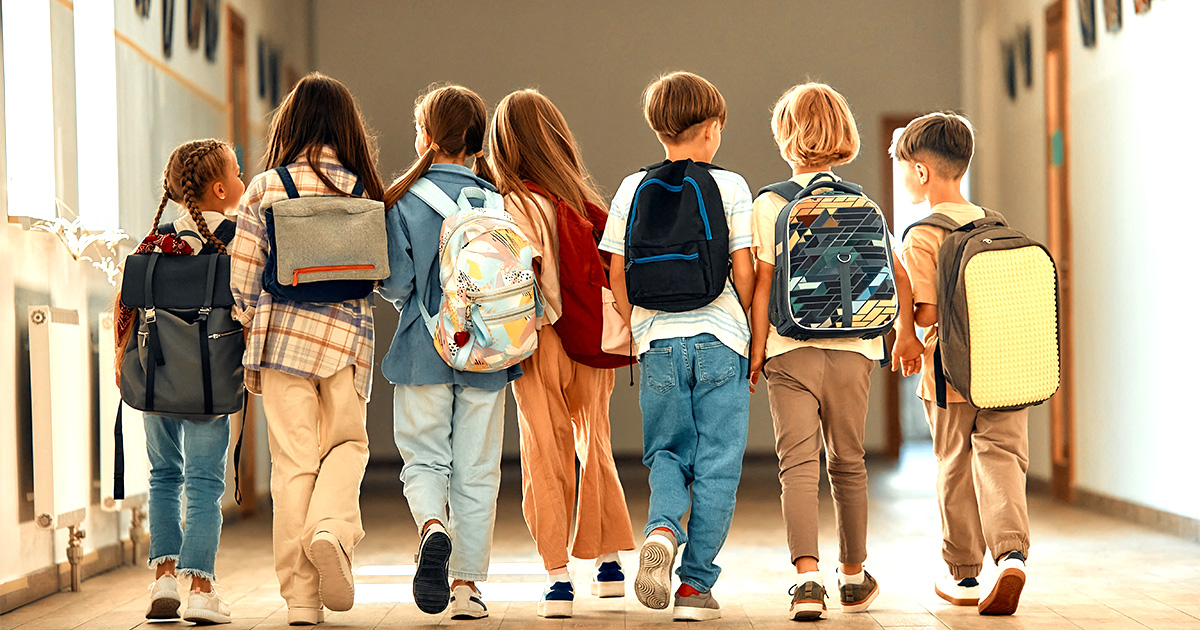- 855.471.2589
- Schedule a Tour

The term School Readiness is often used in an educational setting. It is important to understand what that truly means and how you can help support the journey at home, outside the classroom environment. We want to show you how school readiness aligns with the Montessori Method, as kindergarten is often the next step after the 3-year cycle in the Montessori classroom.
How do experiences in a Montessori classroom prepare young children for future studies in elementary school? How do we ensure children are also developing practical skills that lead to successful lives beyond academics?
According to the NAEYC (National Association for the Education of Young Children), school (or kindergarten) readiness is more than academic knowledge such as recognizing letters, letter sounds, numbers, etc. We need to look at the whole child and their individual development. Appreciating their unique strengths and abilities and adjusting experiences to best accommodate their needs, allows children to continue to develop in many essential ways.
New brain research helps us define readiness beyond academics. “It means that a child has a willing attitude and confidence in the process of learning: a healthy state of mind.” (1) While each child has distinct outward strengths and skills that we encourage and celebrate, it is important to also support the development of their mind to ensure they also embody a readiness to learn.
Dr. Montessori’s early childhood vision took into consideration the whole child and their development, a vision you’ll see brought to vivid life when you tour your neighborhood Montessori school. In Montessori terms, this critical time of growth is referred to as the Sensitive Period. It includes clearly identifying and preparing specific materials to help a child gain independence, a sense of control over learning, and the development of concern for quality, order, and accuracy.
This phase provides a very valuable opportunity for guiding overall readiness as evaluated through a Montessori lens. During this time, “children learn skills related to the sensitive period with ease. They don't tire of that work, but seek it, crave it, and need it.” (2)
"Experiencing all that a Montessori program has to offer helps instill lifetime patterns of responsibility, goal setting, and friendly attitudes toward mistakes as learning opportunities, as well as learning from and mentoring others."
Strong and responsive child-adult relationships throughout these stages are also foundational. When children have secure relationships with the adults in their lives, they more clearly see their value and self-worth. As families help children work through frustrations, challenges, And t successes, children begin to see themselves as capable and able to learn and grow. Their sense of wonder and creativity grows as they problem-solve and engage with the world around them.
The early years of child development set the stage for school readiness. In the article, Ready or Not, Kindergarten Here We Come!(3), NAEYC provides seven tips for families to support the development of readiness skills in young children. They include:
- Help them develop independence at home. Encourage your child to dress themselves, take their coat on and off and hang it up, use the bathroom without assistance, wash their hands without constant reminders, and put on their shoes. During meals, provide serving spoons so your child can help themselves at the table and clear their dishes.
- Focus on self-help skills. Your child should know how to wipe their face after lunch without prompting and blow their nose without assistance. But be sure they are also comfortable asking an adult for help when necessary.
- Teach responsibility. If you haven’t already, start transferring small responsibilities to your child. After a family trip to the pool, you might put your child in charge of emptying the backpack, refilling water bottles, or hanging wet swimsuits. Even when it may be easier for you to complete these tasks, let them take on the responsibility.
- Develop and follow routines. Set up morning routines that will transfer into a school setting. Getting up around the same time every day, getting dressed, and having an early breakfast together is a great way to transition to school.
- Read aloud to your child. Get your child a library card, take them to the library to check out books, and be sure to read to your child every day. Read a variety of books, read the captions under pictures in the newspaper, or even share the comics. Just read!
- Engage in meaningful literacy activities. Encourage your child to help you with thank you cards, shopping lists, or notes. They may start with scribbles or pictures, move into scattered letters, and finally some recognizable words as they enter school. Appreciate their attempts and watch their skills develop with practice.
- Acknowledge their feelings. Take your cues from your child. They may express being nervous, not wanting to go, or, alternately, feeling very excited to start school. Whatever their thoughts, take the time to appreciate where they are, and tailor your conversations accordingly.
Remember, spending quality time together, being responsive, and positively interacting with your children will support their readiness for school and life.
(1) Readiness: Not a State of Knowledge, but a State of Mind
